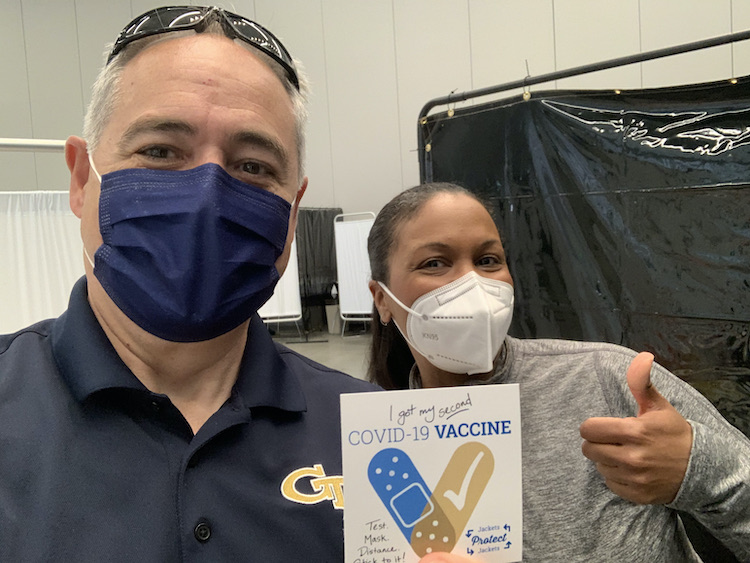This week I received my first dose of the Covid-19 vaccine. It filled me with relief and immense gratitude. I am deeply grateful for the thousands of scientists in places like Georgia Tech who advanced our understanding of viruses and how to engineer mRNA to trigger an immune response; the folks at companies like BioNTech, Pfizer, Moderna, AstraZeneca, Johnson & Johnson, Inovio and many others who didn't hesitate to turn their resources to fighting SARS-coV-2 as soon as the threat became clear; the private investors, philanthropists and governments who put billions of dollars at risk to fund the work; the federal, state and local government officials who arranged the distribution of the new vaccines; the thousands of doctors, nurses, pharmacists and volunteers running this unprecedented campaign of mass vaccination; my colleagues at Stamps Health Services and other departments who set up our own systems and are managing the vaccine administration at Georgia Tech; and nurse Ina Collins, pictured with me below, who delivered mine and checked to see if I felt any reaction (I didn't).
Never before had we (the global "we," the humankind "we") developed, tested, manufactured, distributed, and delivered a vaccine to so many people this fast. Much work remains to be done to increase distribution by an order of magnitude and reach billions of people. And many questions remain open — from how to prioritize vaccination of different groups to how to fund the vaccination of people in low-income countries, to how to deal with vaccine hesitancy and skepticism in many communities. But what we have so far accomplished makes me optimistic about our ability to tackle the most complex problems affecting us as a species and the planet we inhabit. And it reminds me of the enormous responsibility that we have in leading research universities like ours to develop the leaders who will be able to do just that.

